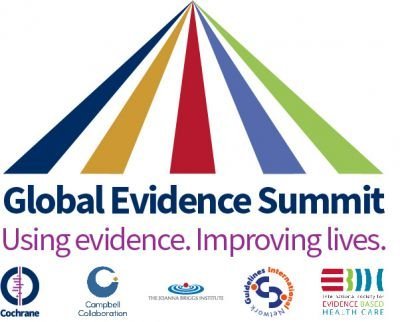CEBaP at the Global Evidence Summit
19/05/17

In September the first Global Evidence Summit will take place in Cape Town, South Africa. This event aims to advance the use of reliable research evidence in addressing some of the world’s most serious health and social challenges. CEBaP will present its work and projects in several ways.
We will give two workshops:
In our workshop “Evidence-Based Practice: Bridging the gap between science and practice”, we will teach the philosophy and the basics of Evidence-Based Practice in an interactive way.
The objective of the second workshop is to share early learning on success factors and challenges in improving the relevance of systematic reviews and use of its’ findings by improving stakeholder engagement throughout the systematic review process.
We will also take part in two special sessions:
In the session “Rigorous and relevant systematic reviews: Lessons learned from mixed methods approaches in international development”, facilitated by the International Development Coordinating Group of the Campbell Collaboration, we will present our Campbell mixed method systematic review.
A special session, organized by Evidence Aid, will consider the challenges of using evidence in humanitarian aid. We will give a presentation about the challenges (and solutions) of using evidence in the humanitarian sector from a Red Cross (operations) perspective.
Evidence Aid will also host an invited session on using evidence in humanitarian emergencies and the difference the evidence base made to the outcomes for the emergency, during which we will give a presentation about ‘Evidence-based mental health in the humanitarian sector’.
Two abstracts were accepted as long oral presentations:
One oral presentation will be about blood donor eligibility in Belgian Red Cross’ Blood Service. The other is about the use of a Theory of Change model in a mixed-methods systematic review (MMSR) where an example from the Development Aid sector will be presented.
And finally, five abstracts were accepted as poster presentations:
- Measuring behavioral change outcomes in development aid: a call for standardization to improve the evidence synthesis.
- Development and assessment of a blended learning module for educating a general audience about Evidence-Based Practice.
- Lumping versus splitting in systematic reviews: feasibility for researchers versus relevance for practice and policy?
- Impact of a guideline update on recommendations and didactic material: the example of AFAM (African First Aid Materials).
- The use of Cochrane reviews in an African first aid and prevention guideline for laypeople.
We are very proud to share our evidence-based projects at this unique gathering of researchers, policy makers and practitioners, and hope to contribute in using evidence to improve lives!
